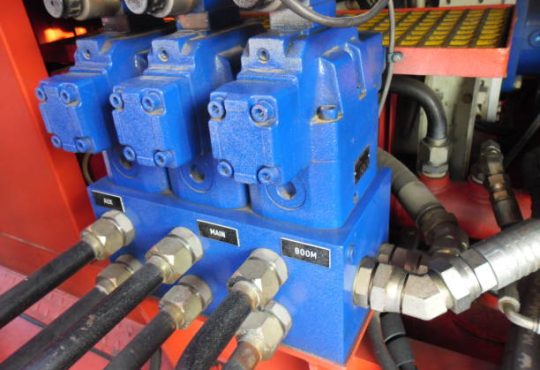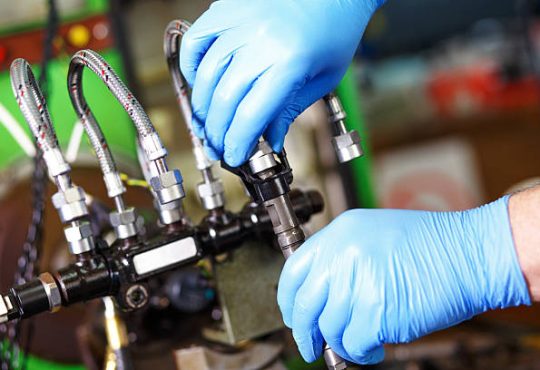
Can You Leave a Diesel Truck Running While Fueling? The Do’s and Don’ts
Diesel trucks are the backbone of many industries, from transportation to construction. Their robust engines and impressive towing capacities make them indispensable for heavy-duty tasks. However, when it comes to fueling these powerful machines, safety and efficiency are paramount. One question that often arises is whether it’s safe or advisable to leave a diesel truck running while refueling. In this article, we’ll explore the intricacies of this topic, providing you with a comprehensive understanding of the best practices for fueling diesel trucks.
The Mechanics of Diesel Engines
To understand the implications of leaving a diesel truck running while fueling, it’s essential to grasp the basics of how diesel engines operate. Unlike gasoline engines, diesel engines use compression to ignite the fuel. This process results in higher efficiency and torque, making diesel engines ideal for heavy-duty vehicles. However, the high compression and combustion temperatures also mean that diesel engines require more careful handling, especially during fueling.
Safety Concerns
The primary concern with leaving any vehicle running while refueling is the risk of fire or explosion. Gasoline vapors are highly flammable, and even though diesel fuel is less volatile, it still poses a significant risk. The static electricity generated by the running engine, combined with fuel vapors, can create a dangerous situation. While diesel fuel has a higher flash point than gasoline, meaning it requires more heat to ignite, the risk is not entirely eliminated.
Regulatory Guidelines
Many jurisdictions have strict regulations regarding the fueling of vehicles, including diesel trucks. For instance, the Occupational Safety and Health Administration (OSHA) in the United States has specific guidelines that prohibit leaving engines running during fueling. These regulations are in place to protect workers and the public from potential hazards. Violating these regulations can result in hefty fines and legal consequences.
Practical Considerations
Beyond safety and legal concerns, there are practical reasons to avoid leaving your diesel truck running while fueling. One of the main issues is fuel efficiency. Idling wastes fuel, and while it may seem negligible during the short time it takes to refuel, those minutes can add up over time, leading to increased fuel costs. Additionally, idling can contribute to engine wear and tear, reducing the overall lifespan of your truck.
Impact on Diesel Particulate Filters (DPFs)
Modern diesel trucks are equipped with Diesel Particulate Filters (DPFs) to reduce emissions. These filters trap soot and other particulates from the exhaust, helping to keep the air cleaner. However, the effectiveness of DPFs can be compromised if the engine is idling for extended periods. When a truck is idling, the exhaust temperature drops, which can prevent the DPF from regenerating properly. This can lead to blockages and reduced engine performance, necessitating costly repairs and maintenance.
Environmental Considerations
Idling diesel trucks also have a significant environmental impact. Diesel engines produce nitrogen oxides (NOx) and particulate matter (PM), which contribute to air pollution and have adverse health effects. Reducing idling times can help minimize these emissions, contributing to a cleaner and healthier environment.
Best Practices for Fueling Diesel Trucks
Given the various concerns associated with leaving a diesel truck running while fueling, here are some best practices to ensure safety, efficiency, and compliance with regulations:
- Turn Off the Engine: Always turn off the engine before refueling. This minimizes the risk of fire or explosion and complies with safety regulations.
- Avoid Idling: Whenever possible, avoid idling your truck for extended periods. If you need to keep the engine running for specific reasons, such as maintaining cabin temperature, consider using auxiliary power units (APUs) or other alternatives.
- Check for Leaks: Regularly inspect your fuel system for leaks or damage. A well-maintained fuel system reduces the risk of accidents during refueling.
- Follow Manufacturer Guidelines: Adhere to the manufacturer’s recommendations for fueling and maintenance. These guidelines are designed to optimize the performance and longevity of your truck.
- Stay Informed: Keep abreast of local regulations and best practices for fueling diesel trucks. Staying informed helps you avoid legal issues and ensures that you are operating safely.
Conclusion
In conclusion, while it might be tempting to leave your diesel truck running while refueling to save time or maintain comfort, the risks and consequences far outweigh the potential benefits. Safety, regulatory compliance, fuel efficiency, and environmental impact are all compelling reasons to turn off your engine during fueling. By following best practices and staying informed, you can ensure the safe and efficient operation of your diesel truck, protecting both your investment and the well-being of those around you.



